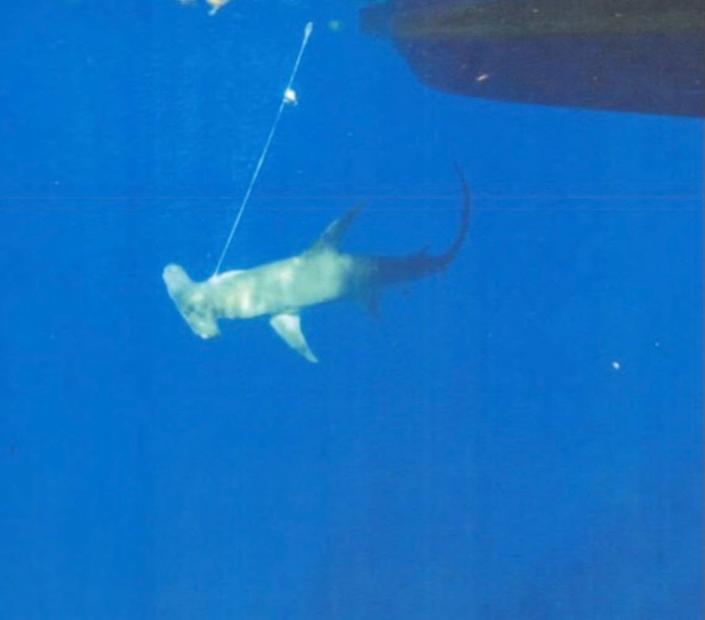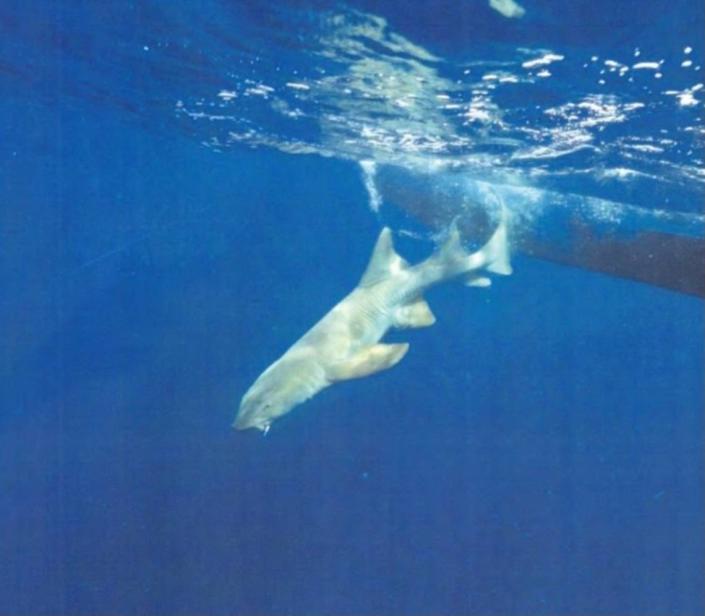Two shark divers freed 19 sharks from a longline. They’re facing five years in prison
Two years ago, a captain and mate of a Jupiter-based shark diving boat stopped about two miles into their trip taking six tourists out to swim with the apex predators.
During the August 2020 charter, they came across a commercial fishing longline — a controversial piece of angling gear consisting of sometimes up to several miles of monofilament line, weights and hooks, designed with the purpose of snagging dozens of fish at a time.
The men, boat captain John R. Moore Jr., 56, and mate Tanner Mansell, 29, gathered up the three miles of line and freed 19 sharks and a Goliath grouper, a state-protected species. The three-hour effort was done with the help of their charter passengers, telling them the line was an abandoned “ghost set” of line, U.S. Attorney’s Office prosecutors said.

Two years later, a grand jury indicted Moore and Mansell of theft of commercial fishing gear in federal waters. A jury convicted the men last week, and they now face five years each in federal prison. The line, prosecutors said, belonged to a commercial fishing operator that was licensed to catch all the species of shark that were hooked that day.
Attorneys for Moore and Mansell declined to comment on the case prior to the scheduled Feb. 9 sentencing, but both men maintained throughout their trial they thought the longline was an illegal setup and their only intent was to free the fish, not steal the gear.
Both men have years of experience working on the water. Moore was a former commercial fisherman, according to federal prosecutors. Additionally, Mansell is a noted underwater photographer and handled sharks for a film shoot of the famous Shark Week series on the Discovery Channel in 2021.
His social media accounts are filled with images of sharks he photographed around the world, as well as messages touting shark conservation.
But federal prosecutors said the pair should have been well aware that the longline they handled and eventually brought back to shore was legitimate. It was attached to a large orange buoy clearly marked with the name of the vessel to which it belonged, the Day Boat III, prosecutors said.
According to prosecutors, a Florida Fish and Wildlife Conservation Commission officer watched as Moore’s boat entered the Jupiter Inlet and stopped the vessel. Moore told the officer the line was an illegal shark fishing set, prosecutors said. The buoy — “which would have established the obvious legality of the shark fishing effort” — was gone, prosecutors said in a statement.

The FWC officer told Moore and Mansell to leave the line, hooks and weights on the dock for evidence, but prosecutors said the pair instead cut up the line and threw all the gear into a dumpster.
“Evidence at trial established that the gear alone cost the vessel owner approximately $1,300, and the value of the lost sharks amounted to several thousand dollars, which represented a significant portion of the income that would be paid to the fishermen,” the prosecutors said.
Moore and Mansell, who their attorneys say are not in federal custody, not only face prison time, but also fines up to $250,000 apiece.
Powered by WPeMatico
